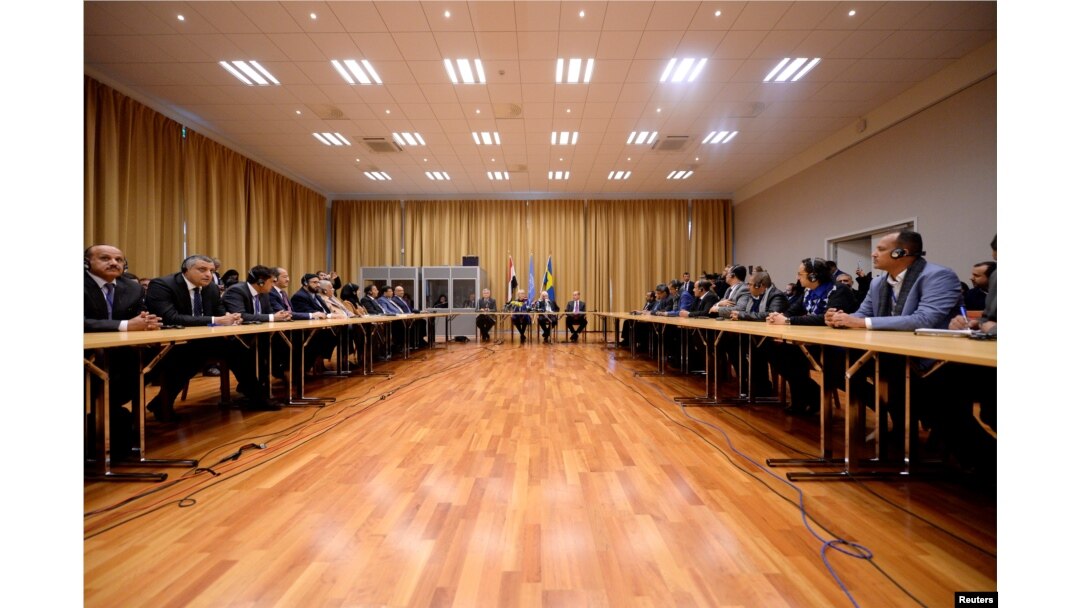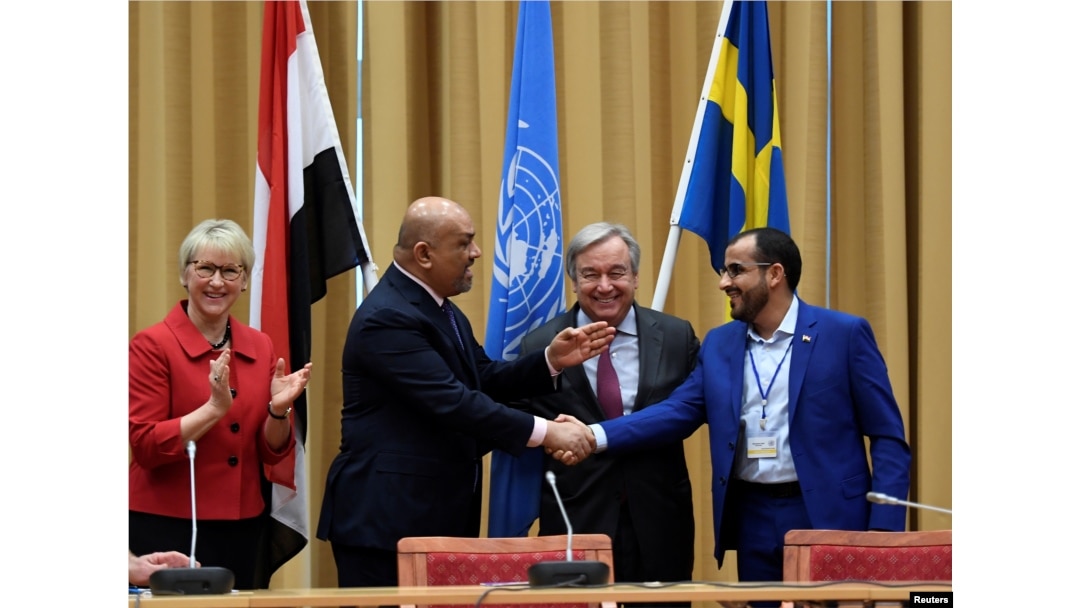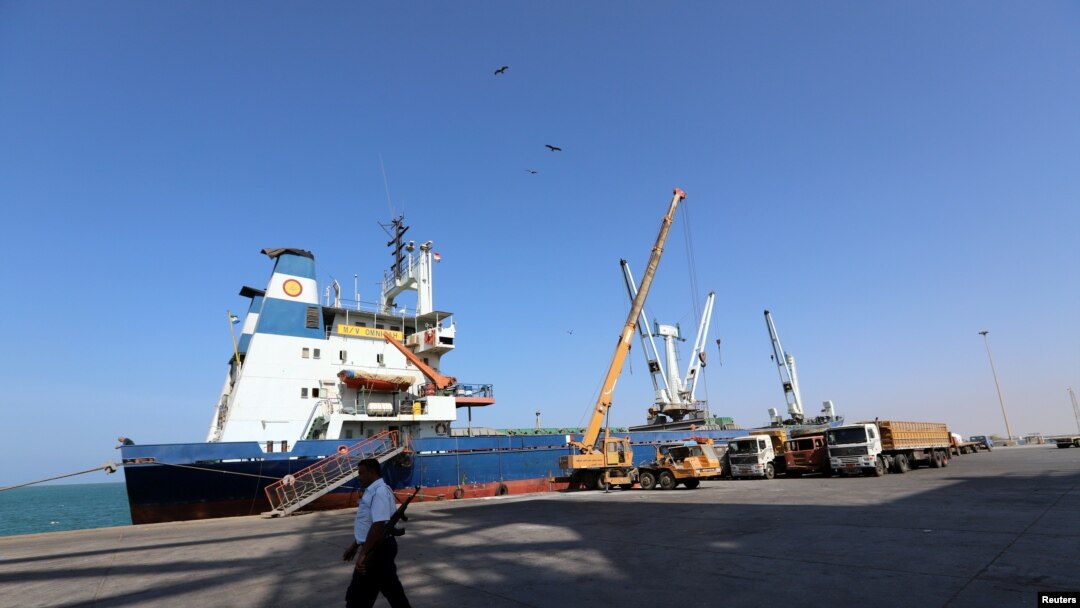The U.N. special envoy for Yemen said Wednesday that a cease-fire for the crucial port city of Hodeida is largely holding, but more progress needs to be made before a second round of peace talks can take place.
“Progress on implementation has been gradual and tentative, but it has made a tangible contribution to peace,” Martin Griffiths said of the December 18 cease-fire and other agreements made at peace talks last month in Sweden. “There are doubtless many hurdles to be overcome in the days, weeks and months ahead, but the parties must not be diverted from their commitments."

FILE - Swedish Foreign minister Margot Wallstrom, U.N. envoy to Yemen Martin Griffiths and delegates attend the opening press conference on U.N.-sponsored peace talks for Yemen at Johannesberg castle, in Rimbo, Sweden, Dec. 6, 2018.
Last month, delegations representing the government of Yemeni President Abdu Rabu Mansour Hadi and Houthi rebels met under U.N. auspices near Stockholm for a first round of talks aimed at ending the nearly four-year long conflict. Parties agreed to the localized truce in Hodeida, as well as redeployment of fighters to agreed locations outside the city. Agreements were also reached on the exchange of thousands of prisoners and for easing the situation in the southwest city of Taiz.

FILE - Head of Houthi delegation Mohammed Abdul-Salam (R) and Yemeni FM Khaled al-Yaman (2 L) shake hands next to UN Secretary-General Antonio Guterres and Swedish Foreign Minister Margot Wallstrom (L), during the Yemen peace talks closing ceremony, Dec. 13, 2018.
Under the Stockholm Agreement and a U.N. Security Council resolution endorsing it, the U.N. has deployed an advance team to monitor the cease-fire. It is also working on details of the redeployment of forces, providing security for Hodeida and the opening of humanitarian access routes. The council is working on a follow-up technical resolution which will authorize a full U.N. team to support the Hodeida truce.
Envoy Griffiths, who addressed the council via a video link from Amman, said he has met with both President Hadi and rebel leader Abdelmalik al-Houthi and that he remains hopeful a second round of talks could take place “in the near future.”
On the humanitarian front, U.N. aid chief Mark Lowcock said the situation remains “catastrophic.”
FILE - In this Sept. 21, 2018 photo, men deliver U.N. World Food Programme (WFP) aid in Aslam, Hajjah, Yemen.
“More than 24 million people now need humanitarian assistance — that’s 80 percent of the population,” Lowcock told the council. “They include 10 million people just a step away from famine.”
He said aid agencies are scaling up to meet these needs.
Last month, the World Food Program reached a record 9.5 million people with emergency food assistance. In the next few months, Lowcock said WFP will expand operations to reach 12 million people a month — including the 10 million most at risk of famine.
“The important progress we have seen on the political track, which Martin [Griffiths] just briefed you on, deserves our full and continuing support, but it does not of itself feed a single starving child,” Lowcock said. “Millions of Yemenis are looking to us for assistance and protection, and we need to see more and faster progress on all the humanitarian elements of your resolution to make any practical difference to their lives.”
A Saudi Arabian-led coalition began bombing Iranian-aligned Houthi rebels in support of Yemen’s government in March 2015. Since then, the U.N. estimates more than 10,000 people have been killed, mostly due to coalition airstrikes.


